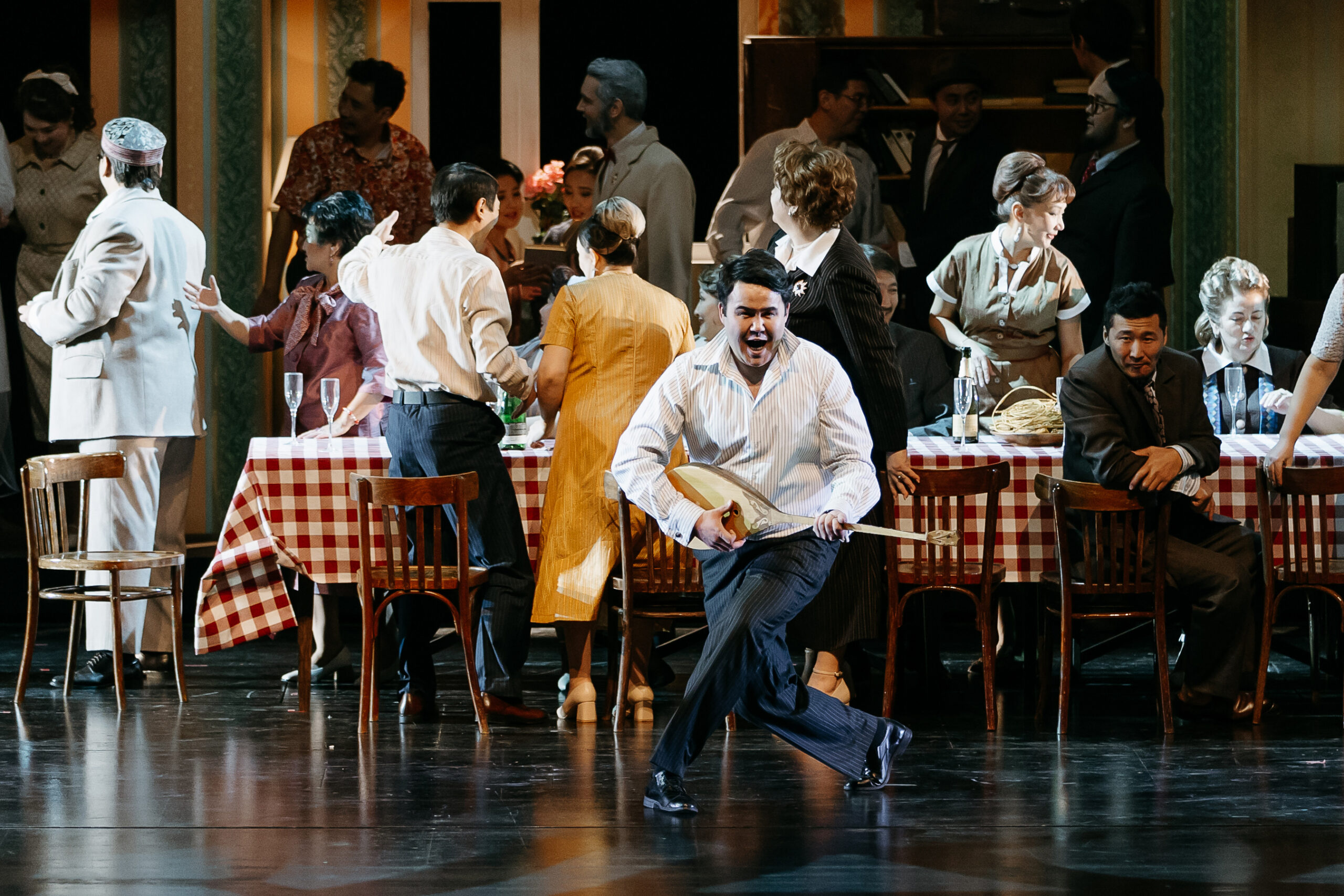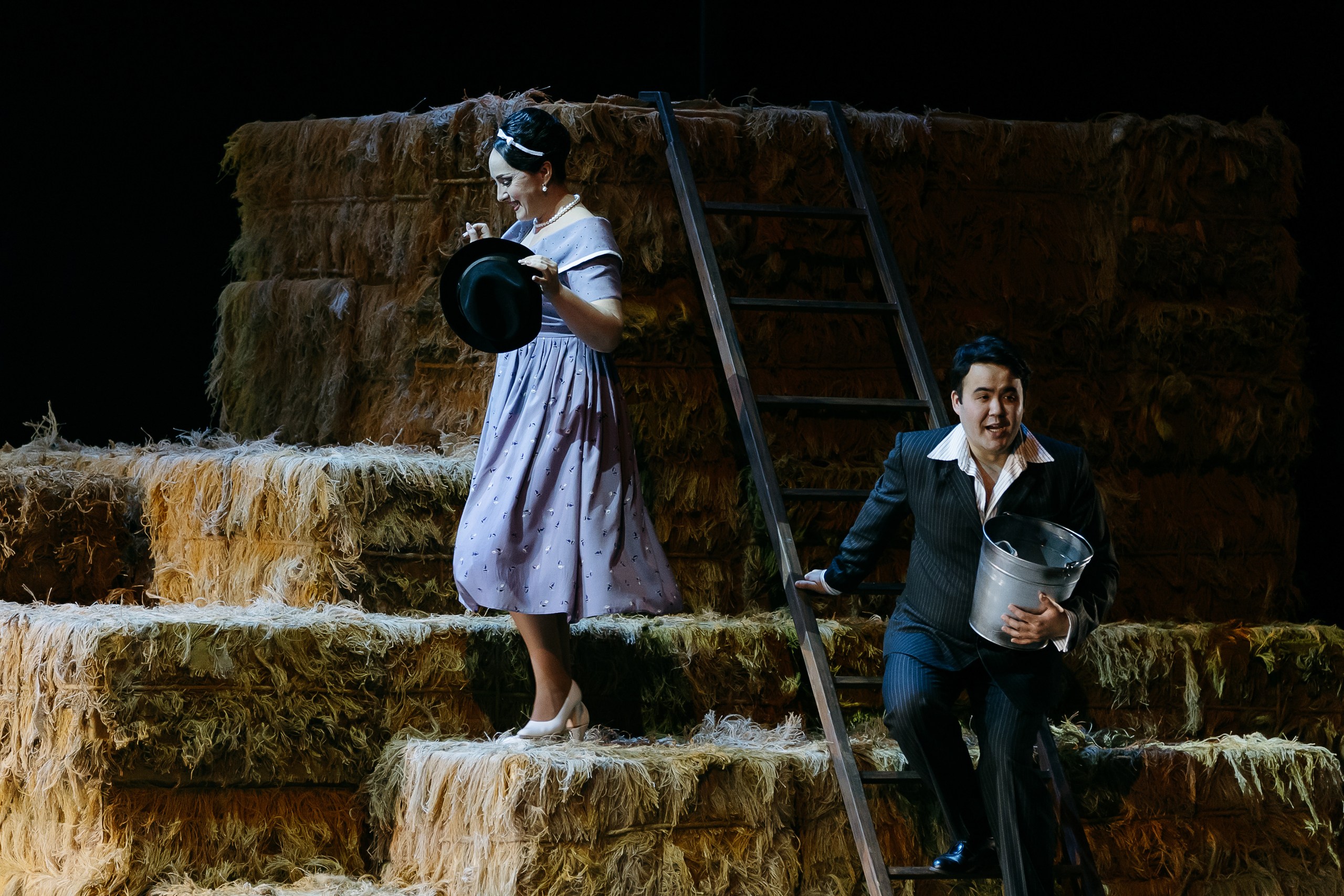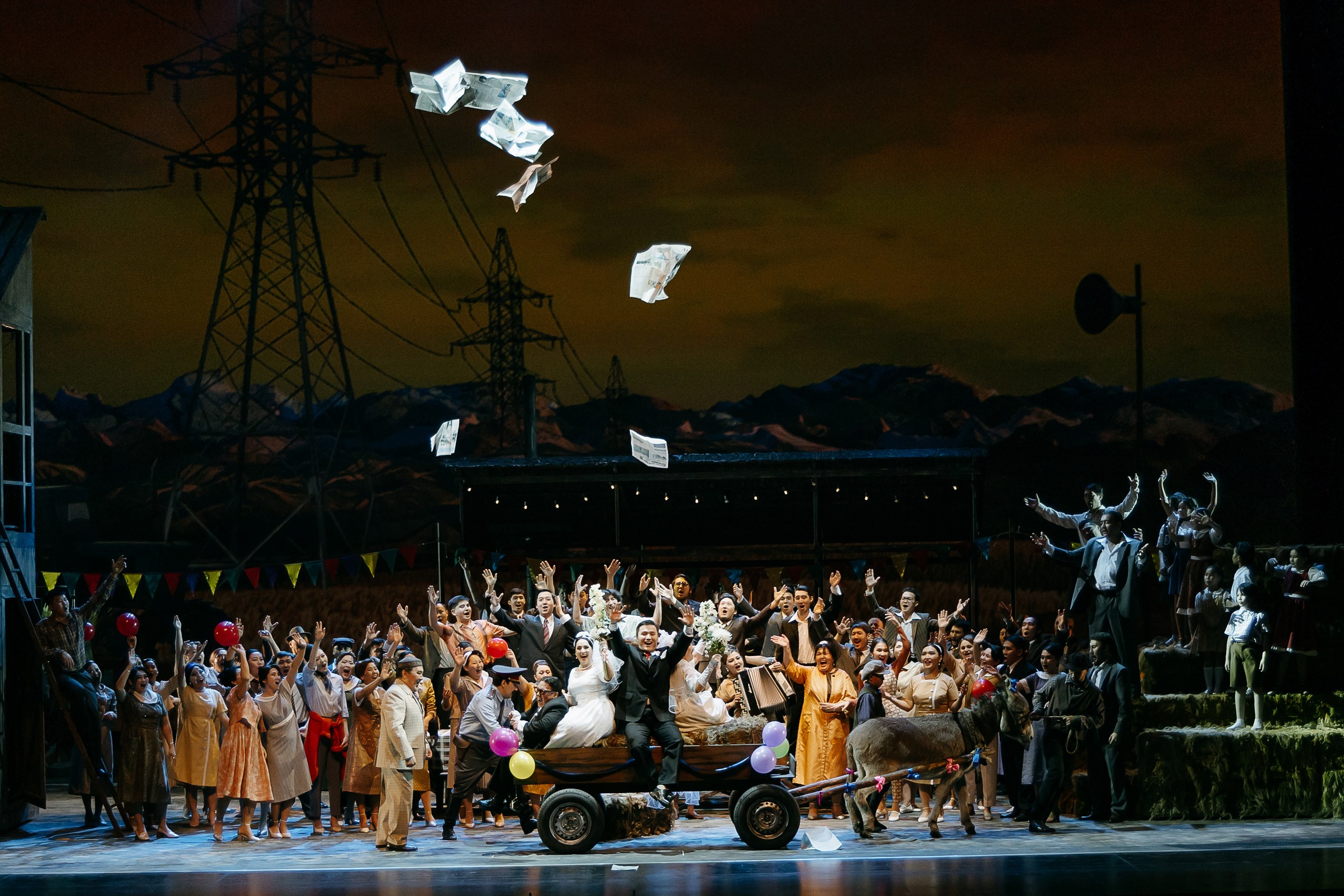ASTANA – Astana Opera unveiled a new edition of “Aisulu” comic opera on Nov. 29, in honor of the 100th anniversary of its composer, the renowned Kazakh musician Sydyq Mukhamedzhanov.

“Aisulu” is the first Kazakh comic opera with a modern plot. Photo credit: Astana Opera press service
Staged in 1972, “Aisulu” became the first Kazakh comic opera with a modern plot. It follows Serke, a young man from a village, as his journey to the city intertwines with the story about an inspiring young woman Aisulu, leading to romantic misadventures, playful tricks, and a joyful celebration of love in the village. Although set in the 1970s, ageless is a fitting description of Mukhamedzhanov’s dramatic exploration of youth, rivalry and love.
“During the preparation process, we analyzed the scores of several old productions, reworked the musical material and created an opera that accurately reflects historical context and style of the 1960s and 70s. This is a light-hearted comic opera, which previously resembled an operetta in its structure, but now we are trying to turn it into a work of a more complex genre. At the same time, the special difficulty is in keeping it easy to perceive, so that the scale of the work done remains invisible to viewers” said Abzal Mukhitdin, music director and conductor of the production.

“Asulu” opera is an ageless exploration of youth, rivalry and love. Photo credit: Astana Opera press service
“The performance will involve mainly young artists, for whom this will be a real challenge, because they did not live in the Soviet era. They will have to immerse themselves in the atmosphere of that time, and our task is to explain, make suggestions, clarify all the subtle nuances,” he added.
Stage director Yerenbak Toikenov sought to convey the comedic nature of the work through lively and dynamic directorial ideas.
“Staging a comedy is not an easy task, requiring painstaking work with events and careful setup of stage situations. The particular difficulty of the comic opera ‘Aisulu’ is that, unlike classical dramaturgically eventful operas, I have to fill each episode myself, look for the fine nuances and collect them, like atoms, to develop the action and emphasize the characters. This creates not only physical but also psychological stress for the vocalists. All performers, be it a soloist or a choir singer, are required not just to participate, but to get a deeper feel for their roles,” said Toikenov.
He also devoted significant effort to assembling the pieces of Mukhamedzhanov’s complete works on “Aisulu.”
“There were so many handwritten notes taken from the archive. If we count them, it turns out to be around a thousand pages. It is very extensive. We worked on this for a year and a month, day and night. Our goal was to collect and restore different versions of the dramaturgy. While looking at the manuscripts, the scenes that had been cut off found their place again. Some scenes had never been played anywhere before,” said Toikenov.

Photo credit: Astana Opera press service
Costume and scenic designers Sofya Tasmagambetova and Pavel Dragunov created a unique stage space that vividly captures the essence of Kazakh youth during the 1960s Soviet era.
“Aisulu” became a remarkable addition to Astana Opera’s repertoire, which features iconic historic operas such as “Kyz Zhibek,” “Abai,” “Birzhan-Sara,” “Alpamys,” and “Kalkaman.”
“The peculiarity of ‘Aisulu’ is that it is closer to our time. Some parts even resemble Puccini’s ‘La Bohème,’” said Toikenov.


